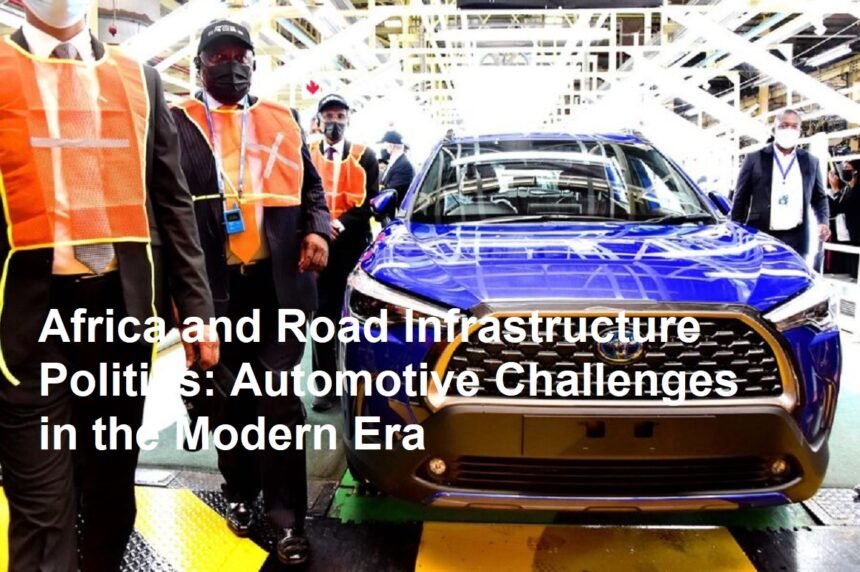Introduction: Why Road Politics Matters in Africa
When people talk about the future of mobility, Africa is often overlooked. Yet the continent is experiencing some of the fastest urban growth in the world. Roads, cars, and public transportation are not just about mobility—they’re deeply tied to politics, economics, and social change.
This article explores the politics of road infrastructure in Africa, the state of public transportation systems, how automotive policies in developing countries are shaping the market, and the impact of global urbanization on Africa’s future.
The State of Road Infrastructure in Africa
Roads as Political Capital
In Africa, roads are more than infrastructure—they’re political promises. A new highway can symbolize economic growth, foreign partnerships, and government credibility. On the flip side, poor road maintenance leads to accidents, congestion, and higher transport costs.
Unequal Development Across Countries
Some nations, such as South Africa and Morocco, have relatively modern highways, while others still depend on unpaved roads that become impassable during rainy seasons. This imbalance demonstrates how road politics directly influences economic opportunity and mobility.
Public Transportation in Africa: Between Informality and Innovation
Informal Systems Dominate Mobility
Across African cities, public transportation is often dominated by informal systems: minibuses, shared taxis, and vans. While they provide affordable mobility, they often lack safety regulations, predictable schedules, and efficiency.
Practical Tips for Commuters
If you’re navigating African cities:
- Plan extra time—delays are common.
- Leverage local apps and platforms—many cities are experimenting with digital tools to track buses and taxis.
- Support advocacy for safer systems—public demand pushes governments toward modern and eco-friendly public transit.
Automotive Policies in Developing Countries
The Import Dilemma
Many African nations face a difficult policy choice:
- Allow cheap second-hand car imports, which make mobility affordable but worsen pollution.
- Or push for newer, cleaner vehicles, which support sustainability but remain too costly for most citizens.
This balancing act defines automotive policies in developing countries. For example, Kenya and Nigeria have attempted to restrict old vehicle imports, but such policies often meet resistance due to affordability issues.
Policy Recommendations
- Phase out old imports gradually instead of sudden bans.
- Support local assembly plants to create jobs and lower costs for new cars.
- Coordinate regionally—a unified automotive policy across African trade blocs could reduce prices and improve standards.
Urbanization and Its Pressure on Roads
Africa’s Rapid Urban Growth
Global urbanization is reshaping Africa at record speed. Cities like Lagos, Nairobi, and Addis Ababa are exploding in size, adding millions of new residents who need mobility solutions.
When Roads Can’t Keep Up
Road networks and public transit investments aren’t growing fast enough. The result:
- Gridlocked traffic.
- Rising air pollution.
- Increased costs for businesses and logistics.
Tips for Urban Residents
- Use carpooling apps to reduce costs and congestion.
- Travel during off-peak hours whenever possible.
- Support sustainable mobility projects, such as cycling initiatives or electric bus pilots.
International Politics and Foreign Investment
Roads as Geopolitical Assets
Africa’s road infrastructure is often tied to international politics. For example, China funds many major highways under its Belt and Road Initiative, while Western development banks focus on sustainable mobility projects.
Practical Tips for Businesses and Investors
- Monitor political deals—new roads often open economic opportunities.
- Plan logistics early—poor road access can severely impact supply chains.
- Consider EV opportunities—while adoption is low, countries like Rwanda are piloting electric buses and motorcycles.
The Future: Where Africa’s Roads Should Go
Smart Infrastructure for a Modern Era
Africa’s future doesn’t just require more roads—it requires smarter ones. That means:
- Digital traffic management systems.
- EV charging infrastructure.
- Regional highways that strengthen trade routes.
Citizens as Change Agents
Communities play a crucial role in demanding infrastructure that serves people rather than political showpieces. Grassroots campaigns and NGOs are already proving that public pressure works.
Everyday Tips for Drivers
- Stay updated on new projects—they can impact property values and commute times.
- Choose fuel-efficient or hybrid vehicles—they save money and adapt to inconsistent road conditions.
- Join community advocacy groups—collective voices influence government policies.
Conclusion: Roads as the Key to Africa’s Automotive Future
The politics of road infrastructure in Africa go far beyond transportation. They shape economies, determine automotive accessibility, and influence how cities adapt to global urbanization. With public transportation still largely informal and automotive policies in developing countries under constant pressure, the road ahead is both challenging and full of potential.
What’s your view? Should Africa prioritize modern public transportation systems or focus on making cars affordable for everyone? Drop your thoughts in the comments below!












